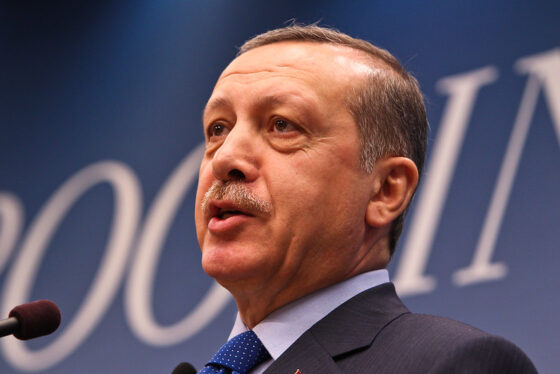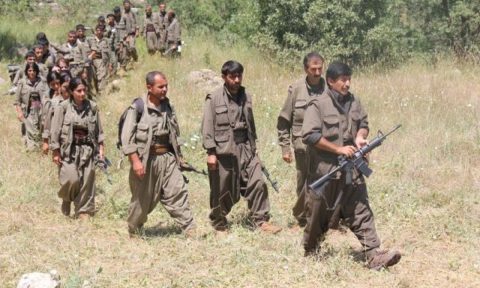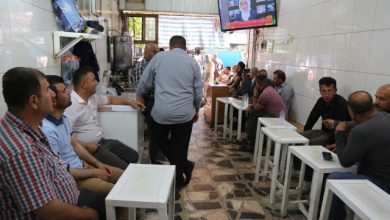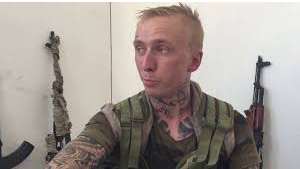By Burak Bekdil
EXECUTIVE SUMMARY: Turkish president Recep Tayyip Erdoğan needed a military success story, and the rescue of 13 hostages held by the PKK in northern Iraq would have fit the bill. Unfortunately, the operation was a tragic failure. Erdoğan now accuses the Kurds, Kurdish political parties, opposition parties, and even the Biden administration of responsibility for the disaster.
The “Gara Affair” will be recalled by both Turks and Kurds as a dark moment in their histories. It entailed a disastrous rescue operation meant to free 13 hostages held by the Kurdistan Workers’ Party (PKK) in northern Iraq. The operation was poorly planned, possibly because of pressure from politicians to supply a triumph to impress the public. The operation resulted in the cold-blooded murder of all 13 hostages as well as the loss of three Turkish officers.
In 2015 and 2016, the PKK abducted 13 Turkish soldiers, police officers, and other government personnel. The government imposed a media blackout on the hostage-taking in order to avoid looking weak during election years. The Turkish people only learned that the abductions had taken place when an opposition MP inquired about the hostages’ fate in a parliamentary motion. By February 2021, the hostages were largely forgotten, except to their families and loved ones.
But on February 8, President Recep Tayyip Erdoğan made a speech in which he told the nation that God willing, they would soon hear wonderful news. There was already speculation about a happy ending to the hostage crisis after Defense Minister Hulusi Akar visited the Kurdistan Regional Government in Erbil, the capital of Iraqi Kurdistan. Was he lobbying for the hostages’ release via Turkey-friendly Iraqi Kurds who have leverage over the PKK?
But the news that emerged was far from wonderful.
At 2:55 am on February 10, the Turkish Air Force launched airstrikes on designated targets in Gara, in northern Iraq, where intelligence had confirmed the hostages were being held in caves. That was the beginning of Operation Claw Eagle-2.
At 4:55 am, after two hours of heavy airstrikes, Turkish helicopters dispatched scores of special forces to the ground. These elite units are called Combat, Search and Rescue, or MAK in the Turkish acronym.
The difficulty was that Gara is uncharted territory. The operation had to be carried out on rocky ground, over mountains and cliffs and through deep valleys that were all unfamiliar to the Turkish troops.
In the first clashes after landing, two Turkish officers and one non-commissioned officer were killed. By that time, DM Akar and four force commanders had arrived at an operations center on the Turkish-Iraqi border. On February 11, Akar told the press that 48 of a total of 50 targets had been hit during the airstrikes and that 53 terrorists had been neutralized (i.e., killed, injured or captured). There was no mention of the hostages.
At that stage, the Turkish people thought Claw Eagle-2 was just another cross-border operation against the PKK. They did not learn it was a hostage rescue operation until February 14, when Akar described the operation’s goals as “the destruction of terrorists, ensuring border security and intervening in favor of hostages.”
At a briefing by Yaşar Güler, Turkey’s top commander and head of the military chiefs of staff, Turkey finally learned the full details of the ill-fated operation.
There was reliable intelligence that the hostages were being kept in caves in Gara. The special forces troops were trained via simulations and models based on the geography of the target area. Clashes between Turkish troops and PKK militants continued on February 10 and 11.
On February 12, Turkish troops arrived at the cave where the hostages were being held. That evening, the terrorist Osman Acer (codename Şervan Korkmaz) surrendered to Turkish soldiers and informed them that all 13 hostages had been executed (and that there were seven PKK militants inside the cave). A second terrorist who also surrendered later confirmed that the hostages had been executed at point blank range when Turkish helicopters arrived in Gara. The order for their execution came from PKK unit leader Kamuran Ataman (codename Sorej).
The official account confirmed that the Turkish troops learned that all the hostages had been killed about 36 hours after the executions had taken place. At that moment, the operation’s goal was revised from hostage rescue to evacuation of bodies and assault on terrorist units. Gen. Güler described the rest of the operation as “extremely difficult … in dark caves where there were iron fortifications and IED traps.” Eventually the bodies were successfully retrieved.
This was the first tragically concluded hostage crisis in Turkey’s recent history. In 1996, Fethullah Erbaş, an MP, negotiated and brought back eight Turkish soldiers who had been kidnapped by the PKK. In 2015, a humanitarian relief organization, IHD, successfully negotiated the release of 20 customs officers kidnapped by the PKK. In 2013, a pro-Kurdish party, BDP, ensured the safe release of two soldiers from PKK captivity. And in 2014, the Turkish government negotiated the successful release of 49 officials who had been kidnapped by ISIS at the Turkish consulate in Mosul, in northern Iraq.
Tough questions must be asked after the loss of the 13 hostages and the three officers. Was the Turkish military under pressure from Erdoğan, who wanted to sell the Turks a miraculous victory story? Was there sufficient intelligence and enough time to prepare for an extremely risky operation?
“The Turkish military had not carried out such an operation before,” said Ahmet Yavuz, a retired major general. “After waiting for six years for their release the government could have waited a little longer to see less risky operational conditions or a different methodology for their release.”
There seems to be a fundamental, perhaps existential impediment to operational planning. Apparently, the special forces units arrived at the right cave 38 hours after the operation had begun with airstrikes. Those units therefore lacked an essential element in any hostage rescue operation: the factor of surprise. The PKK men had nearly two full days in which to decide what to do with the hostages.
At the conclusion of the drama, Erdoğan set about accusing a host of entities for the failure: Turkish opposition parties, the pro-Kurdish party, Kurdish politicians—even the Biden administration, which Erdoğan criticizes for maintaining military cooperation with Syrian Kurds. Had the story had a happy ending, all credit would certainly have been his.
Burak Bekdil is an Ankara-based columnist. He regularly writes for the Gatestone Institute and Defense News and is a fellow at the Middle East Forum.










